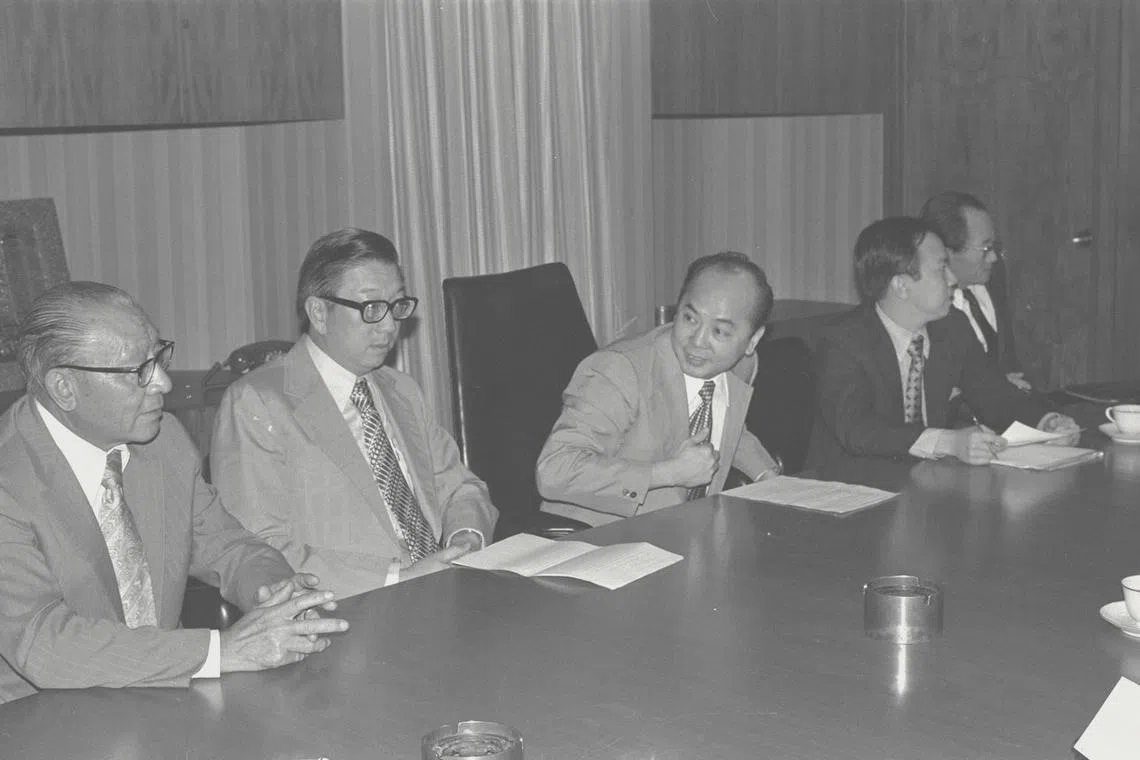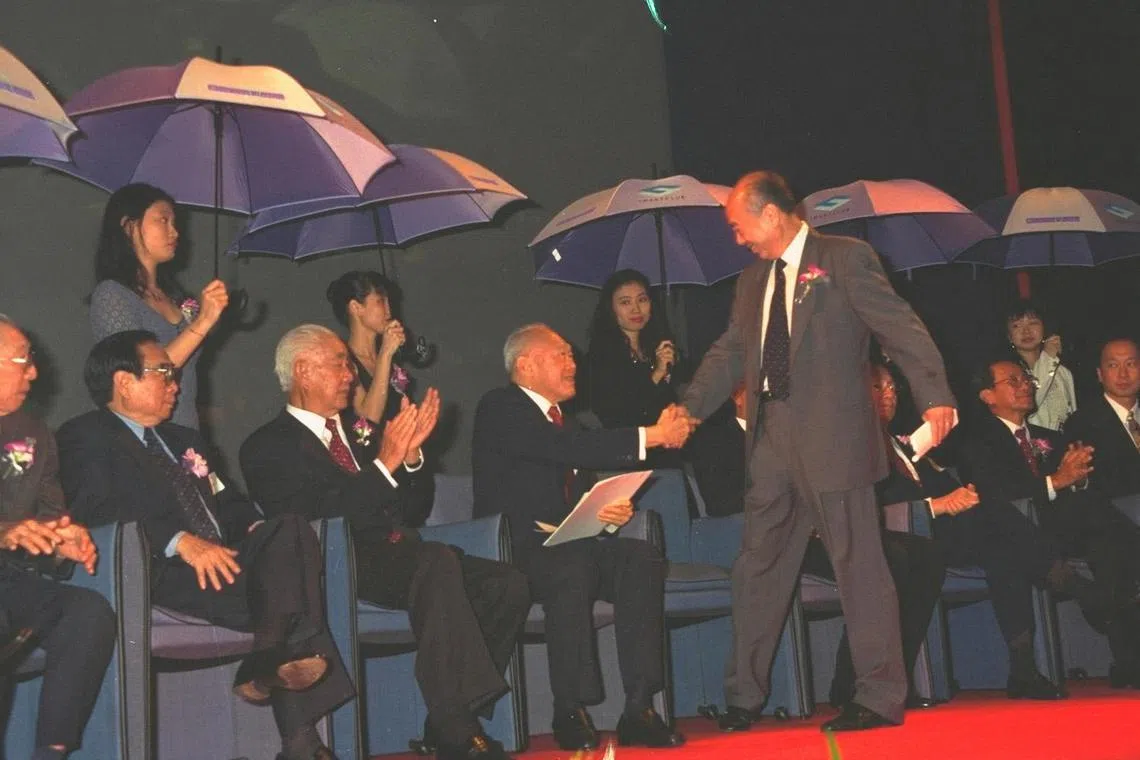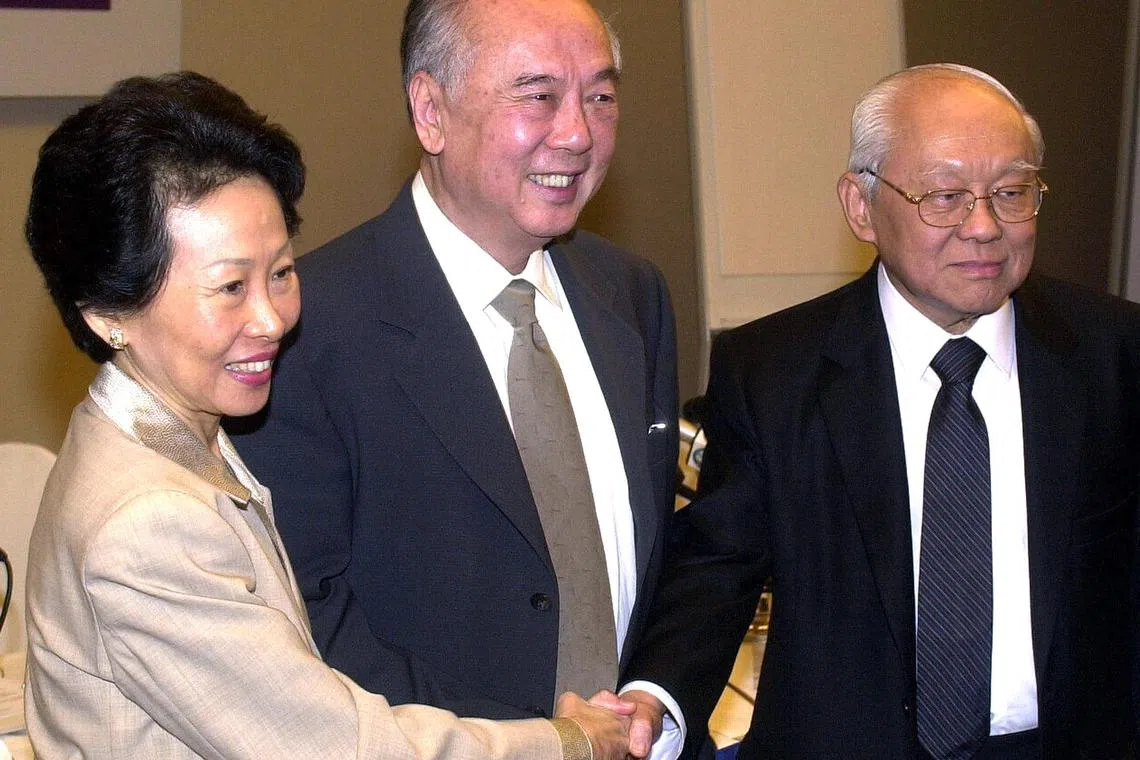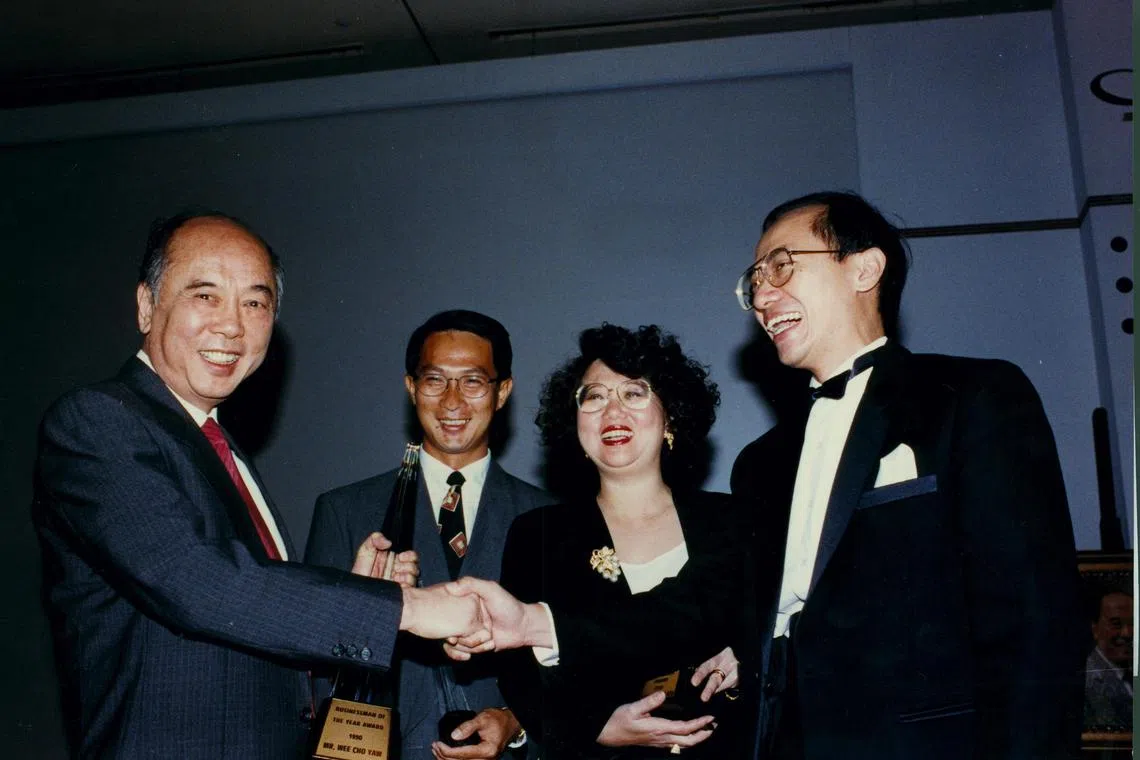Banker extraordinaire and takeover artist: Milestones from Wee Cho Yaw’s career

WEE Cho Yaw, arguably Singapore’s most prominent corporate and banking personality for decades, died at the age of 95 in the early hours of Saturday (Feb 3). The banking titan led UOB – the bank founded by his father – for over 60 years in various top roles, building it into a domestic and regional financial powerhouse. Under him, the bank’s network expanded from 75 to more than 500 branches and offices globally, and assets grew from S$2.8 billion to more than S$253 billion. Though media-shy, Wee often made headlines for high-profile M&A deals, at times clashing with business rivals. The Business Times looks back at Wee’s life and career.
The early years – 1949 to 1965
Born in 1930 to the second wife of UOB founder Wee Kheng Chiang, the younger Wee was just 19 when he started his career, and he quickly rose up the ranks of what was then known as the United Chinese Bank (UCB). In 1949, he joined Kheng Leong, part of the family’s commodities business. Following that, he was appointed to UCB’s board in 1958 and just two years later became managing director after his father stepped down. In 1965, the bank opened its first overseas branch in Hong Kong and renamed itself United Overseas Bank (UOB).
M&A prowess – 1970s and 1980s

The next two decades saw UOB expand both locally and overseas, acquiring several other banks along the way. In 1971, it acquired a majority stake in Chung Khiaw Bank, which was set up in 1950 by Tiger Balm founder Aw Boon Haw. Two years later, UOB added Eu Tong Sen’s Lee Wah Bank to the group. A year later in 1974, Wee was appointed chairman and chief executive officer of UOB. He wasted no time in expanding the bank’s footprint beyond Singapore’s shores. In just the next decade, the bank opened branches, offices and agencies in financial centres around the world – from London, New York and Los Angeles to Seoul and Beijing. In 1987, Wee was back in acquisition mode, with UOB taking a majority interest in Singapore’s Industrial & Commercial Bank.
A new Singapore landmark – 1995
In 1988, UOB hired renowned Japanese architect Kenzo Tange to retrofit its headquarters and add a new skyscraper. The bank celebrated its 60th anniversary with the opening of the UOB Plaza in 1995. The result was an iconic new plaza and 66-storey tower that dominated Singapore’s Central Business District skyline for years.

Historic acquisition, M&A battles – new millennium
In 2001, Wee pulled off the biggest acquisition of his career and what was then the biggest deal in Singapore’s corporate history. UOB beat out an unsolicited bid by DBS for OUB (Overseas Union Bank) by personally visiting OUB founder George Lien Ying Chow to convince him and the Lien family to sell their stakes to his bank.
Navigate Asia in
a new global order
Get the insights delivered to your inbox.
The S$10 billion cash-and-share counter led to the creation of Singapore’s largest banking group and the fourth-largest foreign bank in Malaysia at the time. Wee personally led the UOB-OUB integration, which saw hundreds of job cuts and a massive consolidation of the local banking industry.

While the deal hogged headlines for its scale, rival bidder DBS also hit the news for the wrong reasons. A document by DBS’ adviser Goldman Sachs suggested that UOB and OUB directors did not act professionally in their response to UOB’s offer. The offending statements included the comment “board and management team composed of friends and family”. It also said a UOB-OUB “combination is designed to keep family control intact without regard for shareholder value”. Then DBS chairman S Dhanabalan apologised unreservedly to the chairmen and boards of UOB and OUB. DBS also agreed to pay S$1 million each to UOB and OUB, to be contributed to charities and public bodies. In 2004, UOB took on Temasek, also chaired by Dhanabalan, in the Singapore state investor’s attempt to acquire United Overseas Land (UOL), which was at the time the city-state’s third-largest property company and controlled by Wee. Temasek’s move raised a flurry of queries about its intentions, especially due to UOL’s 4 per cent stake in UOB. Speculation swirled. Some theorised that Temasek was forcing Wee to unwind the cross-holdings he used to control UOB, or even to push him towards a merger with another bank. Dhanabalan at the time maintained that the offer was motivated entirely by commercial reasons – and that Temasek simply wanted to unlock the hidden value in UOL. In the same year, Wee fended off Filipino tycoon John Gokongwei’s bid for control of developer United Industrial Corporation, which at the time owned a 56 per cent stake in Singapore Land – which was Singapore’s largest owner and developer of prime office space.
Global ambitions, accolades and passing the baton
In 1999, UOB acquired Westmont Bank in the Philippines, although Wee later said he was “allergic” to the Philippines and in 2005 admitted that the bank was ready to bail out of the six-year-old loss-incurring venture. In 2004, UOB acquired a 96.1 per cent stake in Bank of Asia Public Company in Thailand and a year later increased its controlling stake of PT Bank Buana in Indonesia to 61.1 per cent. Wee also had the rare distinction of being named Singapore’s Businessman of the Year twice – in 1991 and again in 2001 – at the annual Singapore Business Awards organised by BT and DHL.

He stepped down as CEO in 2007. His son, Wee Ee Cheong, took over as chief executive.
In 2013, he stepped down as chairman and was appointed chairman emeritus and adviser before he retired as a UOB board director in 2018.
Decoding Asia newsletter: your guide to navigating Asia in a new global order. Sign up here to get Decoding Asia newsletter. Delivered to your inbox. Free.
Copyright SPH Media. All rights reserved.


